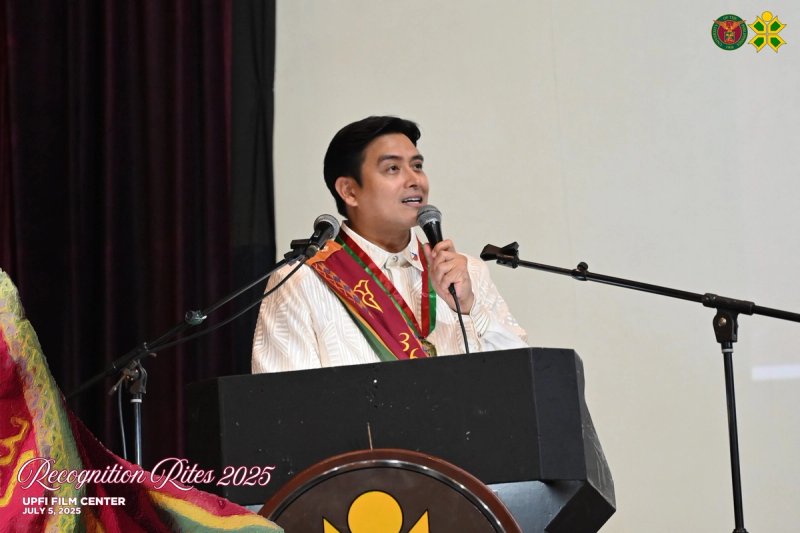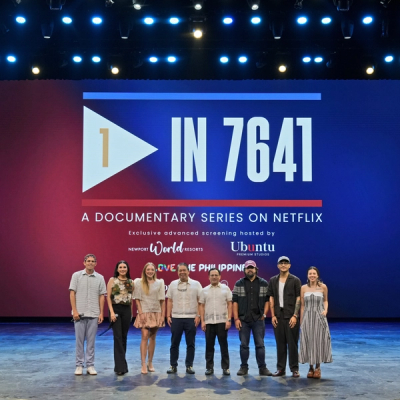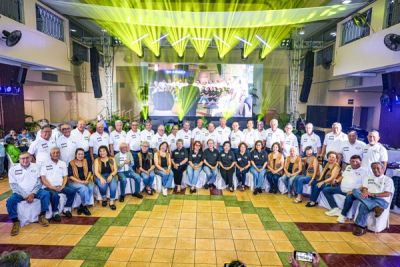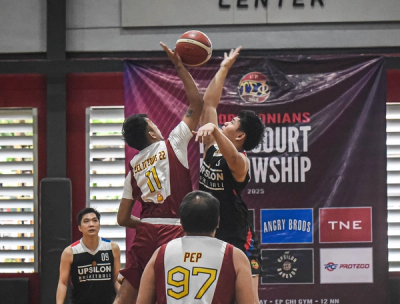Alumni
Alfred Vargas 2020: Proving doubters wrong, one degree at a time

Alfredo Paolo Dumlao Vargas III, better known as Alfred Vargas of Philippine show business and Alfred 2020 to fellow Upsilonians, is no stranger to the spotlight. For decades, he has worn many hats. From his breakout roles on primetime television to his years in the House of Representatives, many Filipinos know him as the matinee idol with leading-man looks who crossed over into public service.
But this year, he stood before a different audience: the graduating class of the University of the Philippines School of Urban and Regional Planning (UP-SURP), where he delivered a message not of celebrity, but of academic excellence, as valedictorian.
"Let this graduation be a natural ending to our graduate course," Vargas told his fellow graduates.
"And the beginning of a new breed of Filipino urban planners who can lead with kindness, expertise, and character,” he added.
For Vargas, public service has never been about redefinition or reinvention. It has always been about consistently doing the work, showing up, and giving his best. Since entering the public sphere in 2002, he has had to push back against the enduring stigma surrounding actors in government—that they lack depth or direction, that their fame masks a lack of substance.
"Even today,” Vargas said. "Those doubts persist."
But with a growing academic portfolio and a strong legislative track record behind him, Vargas believes that he has proven his critics wrong.
Vargas holds a degree in Management Economics from Ateneo de Manila University, a Master’s in Public Administration from UP-NCPAG, and is currently pursuing a PhD in Urban and Regional Planning. He recently completed his diploma at the UP SURP, graduating with the highest honors.
For him, UP has become more than just an institution. It is a second home. “I think I am acquiring, slowly but surely, technical expertise and wisdom from my professors and classmates, who are professionals in their own fields,” Vargas said, emphasizing how theory had become practice in his daily policy work.
But even before he stepped into politics, Vargas already carried a quiet conviction to serve.
"I actually started my political career in Grade 4 when I was elected sergeant-at-arms," Vargas said in jest. That early memory, while humorous, pointed to a deeper sense of calling. Fame came first, but public service was always part of the plan. He risked his acting career to pursue it.
His experience as an actor gave him more than public exposure; it taught him empathy.
"Being an actor taught me how to put myself in another one’s shoes. You cannot be a good actor or a good public servant if you do not have empathy.”
He described acting as his first love, a craft he continues to honor. “I’ve acted on almost all platforms - film, TV, stage, radio, and social media. It’s one of the purest ways to express what it means to be human.”
Yet behind that sense of expression and outward confidence is a man shaped by personal loss. The passing of his father in his early 30s marked a turning point.
"That’s when I started to become a real man–faced with responsibilities, accountable to everyone, and depended on by many.” His father, whom he described as his hero, left behind more than grief.
"I always sought his advice when I needed wisdom. I put him on a pedestal. But when I found out he wasn’t perfect, I realized that it’s okay. Real heroes are real people who’ve made their share of mistakes." The experience made him more grounded, more human, and more ready for the realities of public life.
That grounding carried over into his academic and political journey. Among the places that nurtured his growth was the University of the Philippines. He speaks fondly of its acacia trees, open walkways, and, most importantly, its people. In UP, he found a safe and intellectual space for learning and introspection - a climate, he says, that is truly conducive to progress.
It was at the School of Urban and Regional Planning where his appreciation for governance deepened. He learned that policymaking is more than drafting laws. It entails planning, listening, and building.
"The amount of preparation to ensure sustainable solutions for our community really takes time, blood, sweat, tears, and the collective efforts of people working together.”
For Vargas, “Planning is policy.” He believes no amount of good implementation can fix poor planning. Or vice versa.
Asked to expand on this philosophy, he said, “Every decision an official makes should root from empirical data and careful planning. We can only be efficient if we plan first. We can only be effective if we hear the voices of every stakeholder.”
Vargas said he hoped to specialize in transportation planning, calling it a nexus of traffic, livelihood, and environmental concerns. “My ideal transportation system? One that protects the dignity and well-being of the Filipino people.”
He pointed to Singapore as a model city not just for its efficiency, but for what it symbolized.
“It’s living proof that with good governance and sincere leadership, a country can progress in one generation.” Yet he believes even small shifts in urban design can have impact. He believes protecting existing open spaces, expanding them, ensuring public access, and planting more trees can immediately make urban areas more inclusive and compassionate.
But behind these visions lies an even deeper foundation: the Upsilon Sigma Phi. His initiation into the fraternity was both formative and transformative. It made him stronger, he said, and continues to guide his path today. He often draws strength from Rudyard Kipling’s poem ‘If’, which he recites when faced with adversity.
The fraternity's work ethics continue to define his approach to public life. He credits fraternity brothers Jesse Andres ’81 and Martin Romualdez ’85 as mentors who modeled the kind of leadership rooted in principle and purpose. Their influence left an indelible mark not just on his work ethic, but on his overall worldview.
These influences have also reshaped his definition of success.
"When I was younger, success meant achieving my own dreams. Today, it means helping others achieve theirs," Vargas said.
“Acting gave me satisfaction. But public service gave me fulfillment.” It is a distinction that defines his trajectory - from stage to Congress, from student to statesman," he added.
Whether on screen, in the classroom, or inside the halls of government, Alfred Vargas continues to defy expectations. He is not merely a public figure, he is an Upsilonian. And like all fellows, tried and true, he walks not for applause, but with purpose, along the long, quiet road toward meaningful change.
About the Author
Miguel Gerard S. Sirios 2015
Miguel Gerard S. Sirios 2015 holds a degree in Journalism from the University of the Philippines-College of Mass Communication and is currently pursuing his Juris Doctor at the San Beda College Alabang-School of Law. His professional journey bridges the worlds of media, law, and music–a combination that shapes how he thinks, writes, and creates. As an electronic music producer and DJ, he understands how rhythm and emotion work in harmony. That same instinct guides his writing, where structure meets sound, and clarity is always in conversation with tone. For him, every article is like a track–layered, purposeful, and built to resonate. Whether working on legal arguments or storytelling through sound and language, he sees writing not just as a profession, but as a place where all his worlds intersect.


